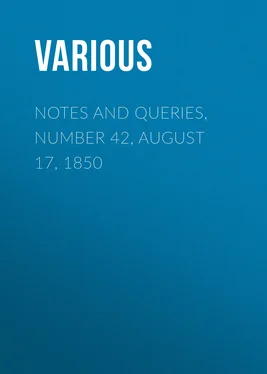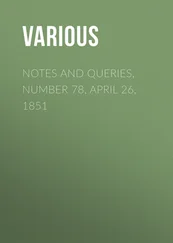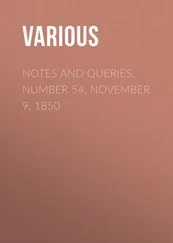HENRY KERSLEY
Corpus Christi Hall, Maidstone.
A FEW OLD MATERIALS FOR ITS ELUCIDATION
" Novaum , vulgo Nouvelle . Ugutio: ' Rumor, murmur, quod vulgo dicitur Novum. ' Occurit non semel in Epistolis Marini Sanuti. 'Novis de Obitu Papæ auditis,' in Regesta Universitatis Paris, an. 1394, Spicileg. Acher. , tom vi. p. 60."
So far Ducange, who also refers to the following:
"Supervenerunt nobis Nova certa de morte, videlicet quorundam Nobilium, nobis adhærentium, captorum per partem dieti Philippi in Britannia, et de speciali Præcepto suo Parisiis ignominiosæ morti traditorum; nec non de Strage, &c. &c."— Charta an . 1346, apud Rymer, t. v. p. 497.
The derivation of this word has been so strenuously and ably discussed by the contending parties in your pages, that I have no intention of interfering (non nostrum tantas componere lites) further than to furnish a few materials bearing on the subject, which may not have come under their notice.
It seems uncertain whether Newes was considered by our ancestors plural or singular . Resolute John Florio is sadly inconsistent in his use of it: in his World of Wordes , ed. 1598, we have:
" Nova , newe, fresh, a noueltie, a newe report .
" Novella , a tale, a nouell, a noueltie, a discourse, a newes a message."
In Queen Anna's World of Wordes , 1611:
" Nova , a noueltie, a new report .
" Novella, a tiding, or newes .
" Novellante , a teller of newes or tidings ."
Here we have newes treated both as singular and plural ! while we have tiding as the singular of tidings , a form which, from long disuse, would now appear strange to us. In the following extract from Florio's very amusing book of Dialogues, Second Frutes , 1591, he makes newes decidedly plural:—
" C . What doo they say abroade? what newes have you, Master Tiberio? T . Nothing that I know; can you tell whether the post be come? C . No, Sir; they saye in the Exchange that the great Turke makes great preparation to warre with the Persian. T . 'Tis but a deuice; these be newes cast abroade to feede the common sorte, I doo not beleeue them.... C . Yea, but they are written to verie worshipful merchants. T . By so much the lesse doo I beleeue them; doo not you know that euerie yeare such newes are spreade abroade? C . I am almost of your minde, for I seldome see these written reports prove true. T . Prognostications, newes , deuices, and letters from forraine countries (good Master Cæsar), are but used as confections to feed the common people withal. C . A man must give no more credite to Exchange and Powles' newes than to fugitiues promises and plaiers fables."
In Thomas's Principal Rules of the Italian Grammer, with a Dictionarie , printed by Thomas Powell in 1562, but written in 1548, we have—
" Novella , a tale, a parable, or a neweltee.
" Novelluzza , an ynkelyng .
" Novellare , to tell tales or newes ."
In the title page of a rare little volume printed in 1616, we have the adjective new in apposition with the substantive newes , thus:
"Sir Thomas Overburie his Wife, with new Elegies upon his (now knowne) untimely death. Whereunto are annexed New Newes and Characters written by himselfe and other learned Gentlemen. Editio septima. London: printed by Edward Griffin for Lawrence Lisle, 1616, 12mo."
The head of one section is—
" Newes from any-whence, or, Old Truth under a supposal of Noueltie ."
Chaucer uses for the newe and of the newe (sc. fashion) elliptically. Tiding or Tidings , from the A.-S. Tid-an, evidently preceded newes in the sense of inteligence, and may not newes therefore be an elliptic form of new-tidinges ? Or, as our ancestors had newelté and neweltés , can it have been a contraction of the latter? If we are to suppose with Mr. Hickson that news was "adopted bodily into the language," we must not go to the High-German, from which our early language has derived scarcely anything, but to the Neder-Duytsch, from the frequent and constant communication with the Low Countries in the sixteenth century. The following passages from Kilian's Thesaurus , printed by Plantin, at Antwerp, in 1573, are to the purpose, and may serve to show how the word was formed:—
Конец ознакомительного фрагмента.
Текст предоставлен ООО «ЛитРес».
Прочитайте эту книгу целиком, купив полную легальную версию на ЛитРес.
Безопасно оплатить книгу можно банковской картой Visa, MasterCard, Maestro, со счета мобильного телефона, с платежного терминала, в салоне МТС или Связной, через PayPal, WebMoney, Яндекс.Деньги, QIWI Кошелек, бонусными картами или другим удобным Вам способом.












